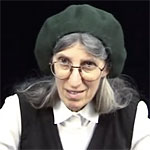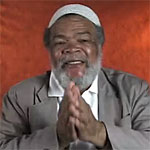The Lost and the Found: The Nation of Islam, 1955-1960.
Between 1955 and 1961, Malcolm X was personally responsible for establishing more than one hundred Muslim temples or mosques throughout the U.S. As the chief public spokesperson for Elijah Muhammad, Malcolm built the NOI from a marginal sect to a spiritual organization of over one hundred thousand. By the early 1960s, Malcolm X was a widely celebrated (and feared) public speaker and debater at universities and in the national media. The Federal Bureau of Investigation’s efforts to discredit the Nation and its leaders led the agency to engage in illegal acts of wiretapping, surveillance, disruption, and harassment.
ADDITIONAL READINGS:
Malcolm X/Haley, Autobiography, Chapter 14.
De Caro, On the Side of My People, Chapter 5, pp. 59-71.
Malcolm X, “Unity,” (Spring 1960) in Louis E. Lomax, When the Word is Given (Westport, CT: Greenwood Press, 1979), pp. 128-135
Malcolm X, “Minister Malcolm X Enunciates the Muslim Program,” in Muhammad Speaks, September 1960 (excerpted).
“What Courier Readers Think: Muhammad Articles Called Undesirable,” Pittsburgh Courier, August 31, 1957, sec. 2, p. 15.  “What Courier Readers Think: Malcolm X Fires Away at Principal,” Pittsburgh Courier, August 31, 1957, sec. 2, p. 5.
“What Courier Readers Think: Malcolm X Fires Away at Principal,” Pittsburgh Courier, August 31, 1957, sec. 2, p. 5.  Moslem Announces $ Million Law Suit,” Pittsburgh Courier, November 9, 1957, p. 1.
Moslem Announces $ Million Law Suit,” Pittsburgh Courier, November 9, 1957, p. 1.  Moslems Await ‘D-Day’ in N.Y. Court,” Pittsburgh Courier, May 24, 1958, p. 7
Moslems Await ‘D-Day’ in N.Y. Court,” Pittsburgh Courier, May 24, 1958, p. 7  “Postpone Moslem Hearing,” Pittsburgh Courier, May 31, 1958, p. 3.
“Postpone Moslem Hearing,” Pittsburgh Courier, May 31, 1958, p. 3.  “TV Show Hits Black Groups,” Amsterdam News, July 25, 1959, p. 2.
“TV Show Hits Black Groups,” Amsterdam News, July 25, 1959, p. 2.  “To Answer TV Critics: Muhammad Speaks Here on Sunday,” Amsterdam News, July 25, 1959, p. 2.
“Moslems Fight Back; Bar White Press,” Amsterdam News, August 1, 1959, pp. 1, 31.
“To Answer TV Critics: Muhammad Speaks Here on Sunday,” Amsterdam News, July 25, 1959, p. 2.
“Moslems Fight Back; Bar White Press,” Amsterdam News, August 1, 1959, pp. 1, 31.  “Races: The Black Supremacists,” Time, August 10, 1959, National Affairs Column, pp. 4-5.
“Races: The Black Supremacists,” Time, August 10, 1959, National Affairs Column, pp. 4-5.  pt 1 |
pt 1 | pt 2
“Africa Eyes Us,” Amsterdam News, August 22, 1959.
pt 2
“Africa Eyes Us,” Amsterdam News, August 22, 1959.  Clark, “Rise in Racial Extremism Worries Harlem Leaders,” New York Times, January 25, 1960, pp. 1, 18.
Clark, “Rise in Racial Extremism Worries Harlem Leaders,” New York Times, January 25, 1960, pp. 1, 18.  pt 1 |
pt 1 |  pt 2 |
pt 2 |  pt 3
“Muslims Ask Foes to 6-Hour Rally,” Pittsburgh Courier, May 21, 1960, p. 2.
pt 3
“Muslims Ask Foes to 6-Hour Rally,” Pittsburgh Courier, May 21, 1960, p. 2.  Frankel, “Cuban in Harlem,” New York Times, September 20, 1960, p. 1.
Frankel, “Cuban in Harlem,” New York Times, September 20, 1960, p. 1.  pt 1 |
pt 1 |  pt 2 |
pt 2 |  pt 3 |
pt 3 |  pt 4
“Malcolm X Explains Wee-Hour Visit to Castro at Theresa,” Pittsburgh Courier, October 1, 1960, p. 3.
pt 4
“Malcolm X Explains Wee-Hour Visit to Castro at Theresa,” Pittsburgh Courier, October 1, 1960, p. 3.  Hailey, “Nkrumah Tells Rally in Harlem Negroes Form U.S.-Africa Bond,” New York Times, October 6, 1960, p. 18.
Hailey, “Nkrumah Tells Rally in Harlem Negroes Form U.S.-Africa Bond,” New York Times, October 6, 1960, p. 18.  Terry, “Black Muslim Elijah’s Lowly Start,” Washington Post, December 12, 1960, p. A3.
Terry, “Black Muslim Elijah’s Lowly Start,” Washington Post, December 12, 1960, p. A3.  pt 1 |
pt 1 |  pt 2
Terry, “Black Muslims Told They’re ‘Chosen People’,” Washington Post, December 15, 1960, p. B12.
pt 2
Terry, “Black Muslims Told They’re ‘Chosen People’,” Washington Post, December 15, 1960, p. B12.  Terry, “Black Muslims’ Hate Campaign Criticized,” Washington Post, December 16, 1960. p. A18.
Terry, “Black Muslims’ Hate Campaign Criticized,” Washington Post, December 16, 1960. p. A18.







 Dorothy Fardan on the NOI's appeal to black prisoners
Dorothy Fardan on the NOI's appeal to black prisoners Max Stanford on Elijah Muhammad's alleged meetings with white supremacists
Max Stanford on Elijah Muhammad's alleged meetings with white supremacists Abdullah Abdur-Raazaq on the leadership structure of the NOI, pt. 1
Abdullah Abdur-Raazaq on the leadership structure of the NOI, pt. 1 Farah Griffin on color politics within the Nation of Islam
Farah Griffin on color politics within the Nation of Islam Louis DeCaro on Malcolm's 1959 trip to the Middle East
Louis DeCaro on Malcolm's 1959 trip to the Middle East